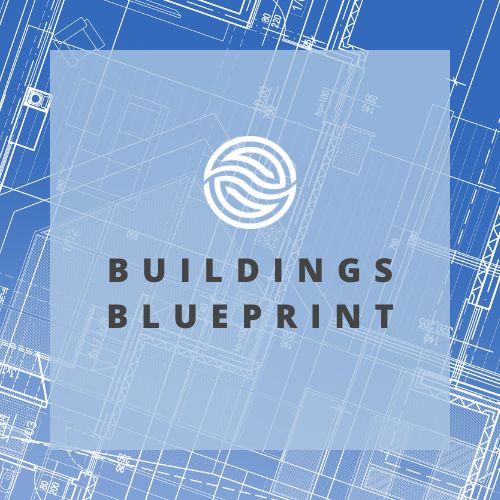Category: Buildings Blueprint Newsletter
Q1 2026 Buildings Blueprint

Buildings Blueprint
February 2026
Welcome to SEEA’s Buildings Blueprint, where we share updates and resources on energy codes and the built environment across the Southeast and U.S. Island territories.
SEEA Updates
December Map of the Month: Energy Burden in Mississippi
Mississippi plays a major role in the nation’s energy system, yet households across the state face some of the highest levels of energy insecurity in the country. This month’s map uses U.S. Department of Energy LEAD Tool data to show average energy burdens by census tract, revealing that affordability challenges are widespread, particularly in the Mississippi Delta and rural communities, where historic disinvestment and higher poverty rates deepen household energy costs. Understanding where burdens are highest can help guide targeted weatherization and home repair efforts that improve affordability and support overall grid reliability.
Click the link below to read the blog and explore the interactive map.
January Map of the Month: Aging Homes, Rising Energy Costs
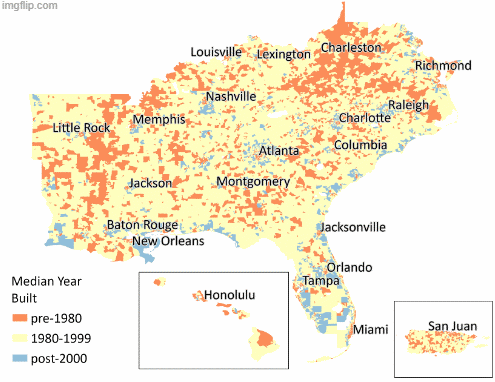
Across the Southeast, the age of our housing stock plays a major role in energy costs and affordability. Roughly 40% of homes were built before 1980, often before modern energy codes were in place, and rural communities are especially impacted, with some areas where 40% or more of homes were built before 1960. Without efficiency upgrades, residents in these older homes are more likely to face higher energy bills.
January’s Map of the Month, by Amy Lovell, Ph.D., highlights where older homes are concentrated across the region and underscores the opportunity for energy efficiency upgrades, which can reduce annual energy costs by 10–30%. It also shows how newer building energy codes can deliver additional savings for new construction, while pointing to ongoing challenges around upfront repair costs and limited funding for retrofits.
Resources
Virginia Launches Centralized Hub for Energy Rebates and Incentives
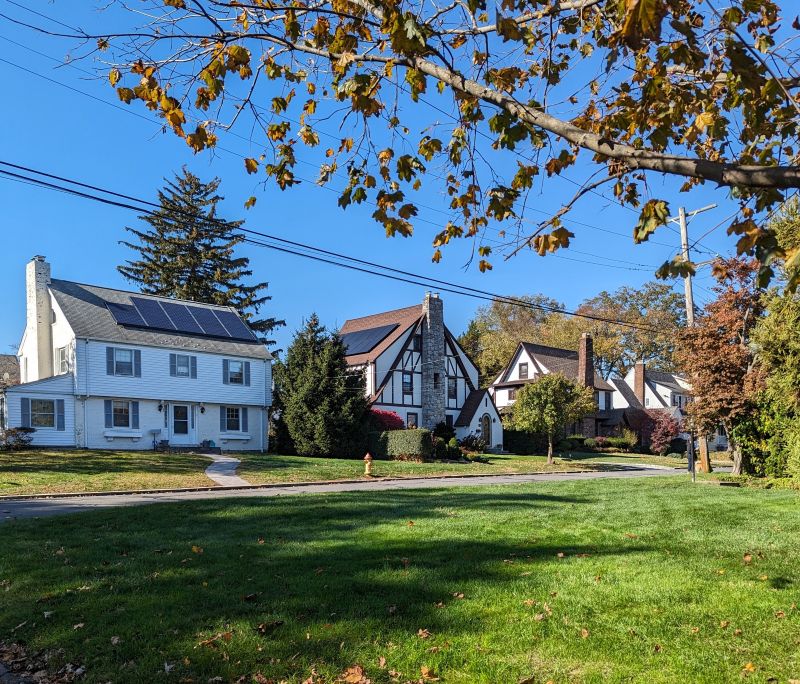
The Virginia Department of Energy has launched a new online platform, Virginia Energy Connect (VEConnect), designed to simplify access to energy rebates and incentive programs for residents and businesses statewide. The hub brings together federal, state, and local energy programs into a single, easy-to-navigate site, helping users more easily identify and stack opportunities for energy upgrades and cost savings.
Developed in collaboration with community organizations, state and local agencies, utilities, and contractors, the platform was shaped to address common barriers to participation in energy affordability programs. For households and small businesses facing high energy costs, VEConnect highlights pathways to energy-efficient technologies and building improvements that can lower bills and improve comfort—offering a model for how one-stop-shops can support energy efficiency goals across the Southeast.
New Playbook Supports Public Sector Innovation
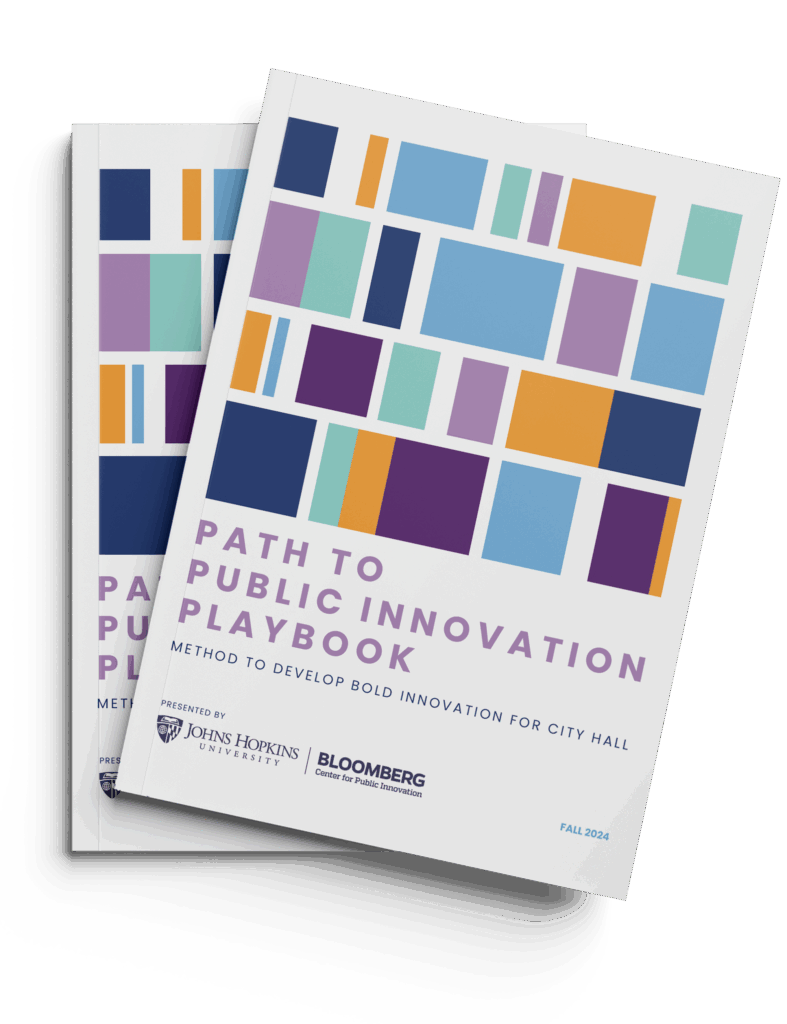
A new resource from Johns Hopkins University, developed in collaboration with Bloomberg Philanthropies Innovation Teams (i-teams), offers practical guidance for public sector leaders working to solve complex local challenges. The Path to Public Innovation Playbook outlines tested methods and mindsets that help governments identify opportunities for impact, build trust with residents, and deliver lasting systems-level change.
Designed for cities building internal innovation capacity, the Playbook draws on lessons from i-teams in more than a dozen countries and can be used as a guide, reference, or companion to training. For communities advancing energy efficiency, building performance, and climate resilience, the resource offers valuable insights into how local governments can design and implement inclusive solutions that respond to real-world conditions in the built environment.
New Guide on Multifamily Heat Pump Water Heater Installations

A new factsheet from the Advanced Water Heating Initiative outlines best practices for installing heat pump water heaters (HPWHs) in multifamily buildings. Based on insights from an ongoing 400-unit retrofit project, the guide highlights key lessons from replacing in-unit gas water heaters with HPWHs, alongside ductless heat pumps for space heating.
The resource focuses on common challenges and practical strategies to support successful implementation, offering helpful guidance for those navigating similar upgrades.
Regional News
Virginia Data Center Project Breaks Ground in Caroline County
Construction is underway on a new data center campus in Caroline County, Virginia, where CleanArc Data Centers is investing $3 billion in a large-scale digital infrastructure project. The campus, which officially broke ground on November 20, 2025, is designed to support nearly one gigawatt of grid capacity and respond to growing demand for scalable, energy-conscious data center development.
The project incorporates features such as water-efficient cooling systems, land conservation measures, and design elements intended to limit noise and light impacts. As data center growth continues across the Southeast, developments like this highlight the increasing importance of energy efficiency, grid coordination, and sustainable building design in meeting rising digital demand while managing local impacts.
City of Charlotte Launches Program to Support Accessory Dwelling Units
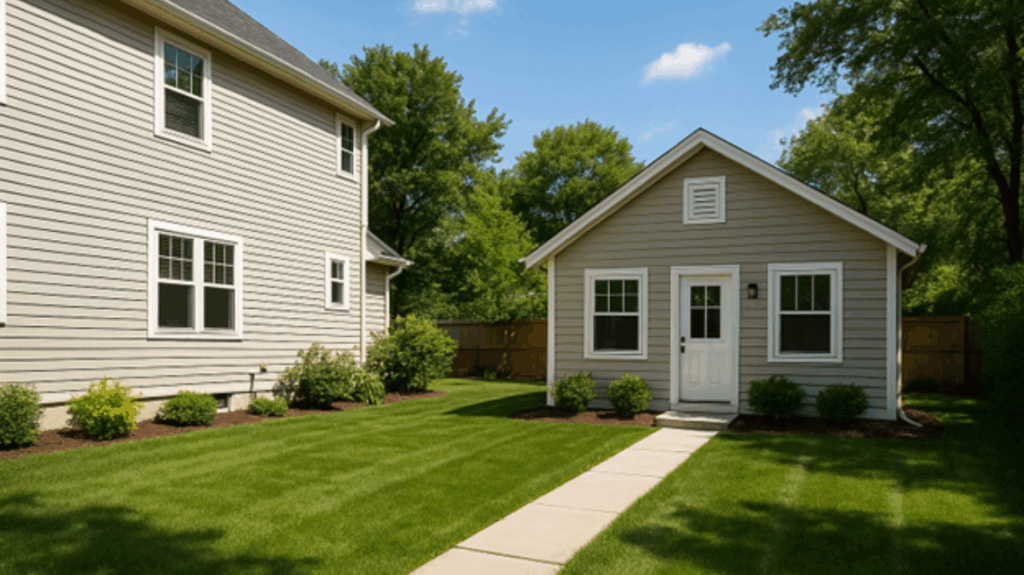
The City of Charlotte has launched the Queen City ADU Program to make it easier for property owners to add accessory dwelling units (ADUs) to existing residential properties. ADUs—such as garage apartments, basement conversions, or detached backyard units—offer a flexible way to introduce smaller housing options while maintaining neighborhood character.
As cities across the Southeast look to expand housing supply in thoughtful ways, ADUs are emerging as a practical tool to support affordability, sustainability, and more efficient use of existing infrastructure. Charlotte’s program highlights how local policies can encourage gentle density, provide housing options for seniors, single residents, and multigenerational households, and advance climate-conscious development within established communities.
What SEEA Staff is Reading
New Report Links Modern Building Codes to Insurance Affordability
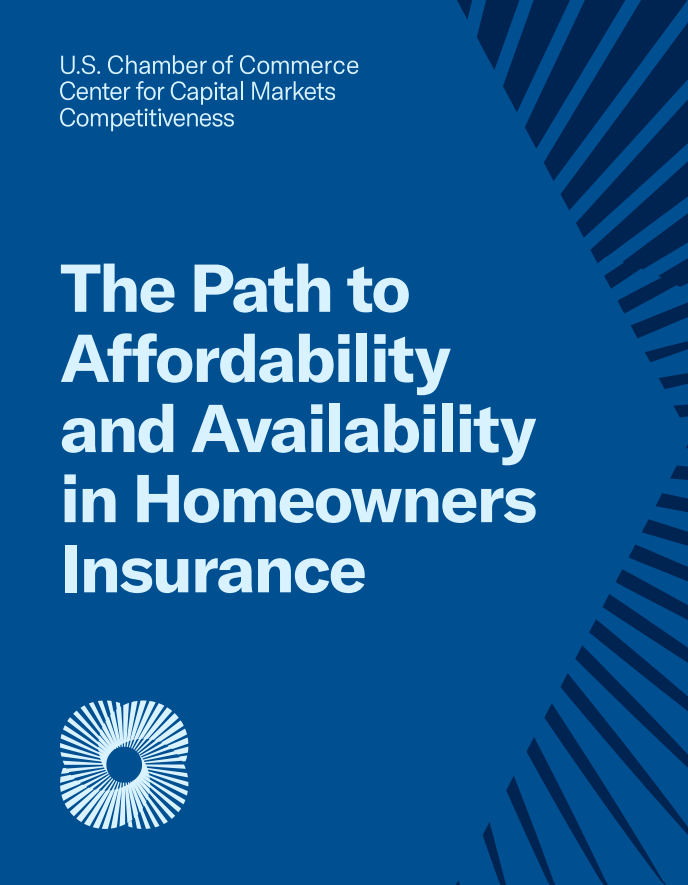
A November 2025 white paper from the U.S. Chamber of Commerce’s Center for Capital Markets Competitiveness examines strategies to improve the affordability and availability of homeowners insurance amid growing climate and disaster risks. The report highlights adoption of the latest International Codes® as a key tool for reducing property losses, estimating that widespread use of modern building standards could help prevent more than $600 billion in damages by 2060. For the Southeast, where resilience and energy performance are increasingly intertwined, the findings reinforce how up-to-date energy and building codes can support safer, more durable, and cost-effective buildings over the long term.
New Global Guide Supports Bamboo as a Low-Carbon Building Material
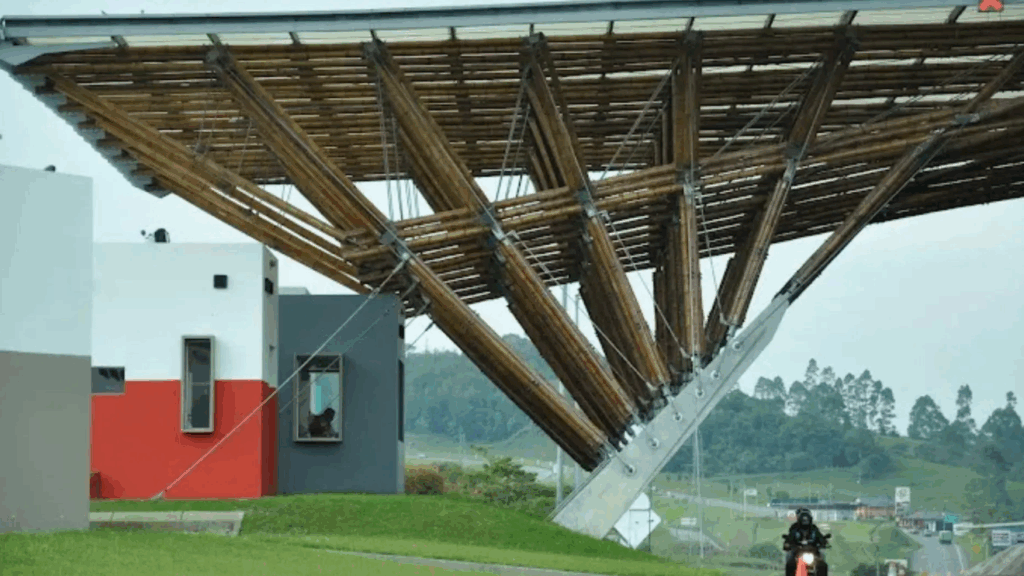
A new structural engineering manual published in January 2026 introduces the world’s first standardized guidance for using bamboo as a primary structural material in buildings. Developed by researchers and engineers from institutions including the University of Warwick, Arup, and international partners, the guide aims to close a long-standing gap that has limited bamboo’s use in modern construction despite its strength, affordability, and low carbon footprint.
By providing clear design principles for safe, durable bamboo structures—including guidance on resilience and fire considerations—the manual opens the door for broader adoption of bio-based materials in the built environment. For regions exploring lower-carbon alternatives to steel and concrete, the resource highlights how updated standards and technical guidance can expand sustainable building options while supporting climate-conscious design worldwide.
Atlanta Revitalizes Downtown Ahead of the 2026 World Cup
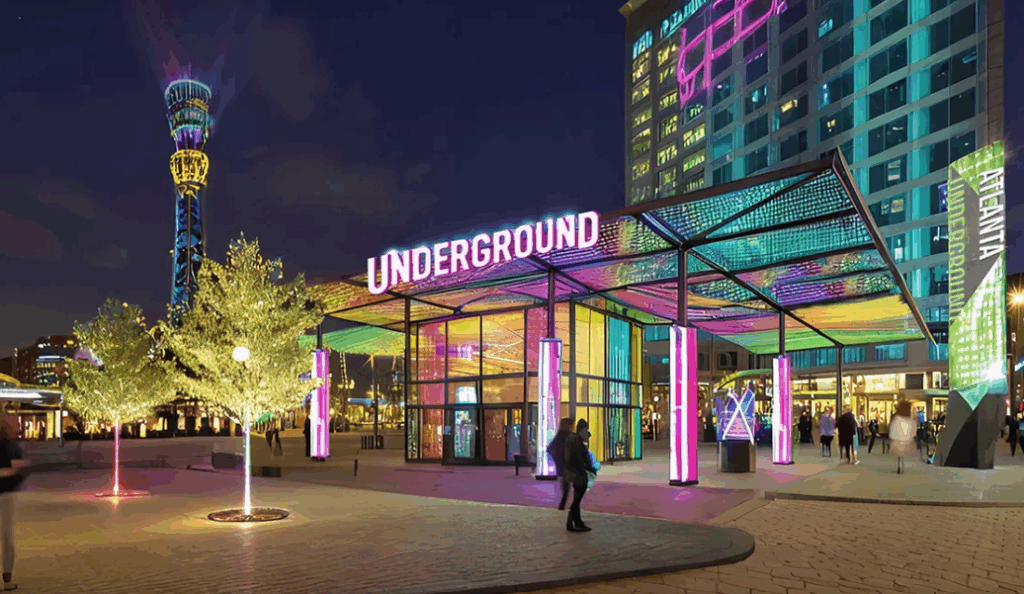
As Atlanta prepares to host the 2026 FIFA World Cup, the city is moving forward with a major revitalization effort in the historic Underground Atlanta district. New pedestrian-only streets, streetscape improvements, lighting, greenery, and adaptive reuse projects are reshaping the four-block area to improve walkability, accessibility, and everyday use for residents and visitors alike.
Led by local ownership and supported by city planning efforts, the redevelopment emphasizes reuse of existing buildings, support for small businesses, and a more people-centered downtown experience. While the World Cup has accelerated timelines, project leaders note that the upgrades are designed to deliver lasting benefits—laying the groundwork for a more vibrant, sustainable downtown long after the global event concludes.
What Ski Resorts Can Teach Us About Energy-Efficient Buildings
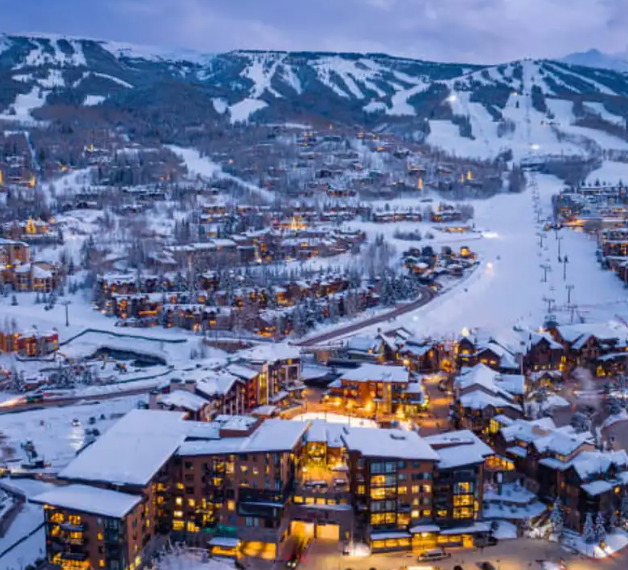
Ski resorts across the U.S. are investing in cleaner energy systems, more efficient buildings, and lower-impact operations to reduce their environmental footprint. A recent roundup highlights resorts that are leading the way through strategies such as on-site renewable energy, efficient heating and snowmaking systems, waste diversion, and transportation initiatives.
While the approaches vary by location, the examples underscore a broader lesson for the built environment: large, energy-intensive facilities can meaningfully reduce emissions and operating costs through thoughtful building upgrades and clean energy integration. For communities across the Southeast and beyond, these efforts illustrate how efficiency and sustainability measures can help preserve economic activity, manage energy use, and adapt buildings to changing climate conditions.
Trane and Amazon Partner on AI-Driven Energy Efficiency in Large-Scale Facilities
Trane Technologies, in collaboration with Amazon and Amazon Web Services, is scaling the use of AI-enabled building controls to improve energy efficiency and reduce emissions across Amazon Grocery fulfillment centers in North America. Initial pilots at three facilities achieved nearly 15% reductions in energy use by autonomously optimizing HVAC systems—exceeding original performance targets without compromising comfort or operations.
Following the pilot’s success, the technology is expected to roll out across more than 30 fulfillment and distribution centers, with plans to expand into grocery stores beginning in 2026. For the built environment sector, the collaboration highlights how advanced controls, data-driven operations, and scalable digital tools can play a growing role in decarbonizing existing buildings while delivering measurable cost and energy savings.
Walmart Scales 3D-Printed Construction Across Retail Projects
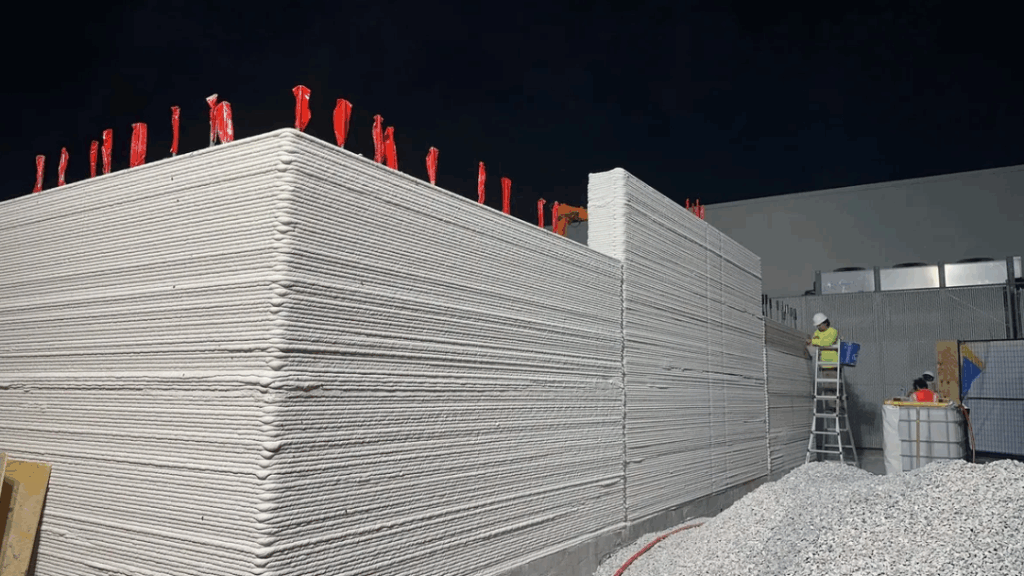
Walmart is expanding the use of 3D concrete printing across multiple construction projects nationwide through a partnership with Alquist, signaling a shift from pilot projects to broader commercial deployment. The initiative will deliver more than a dozen projects of varying size and scope, beginning with a new build at a Walmart site in Missouri.
The approach uses robotic 3D printing systems to produce structural walls and building components, supported by construction partners FMGI and Hugg & Hall. Project teams point to faster timelines, reduced on-site waste, and more consistent construction quality compared to conventional methods. As retailers and developers explore new ways to build more efficiently, the expansion highlights how emerging construction technologies could reshape commercial building delivery while supporting cleaner, more resource-efficient practices.
Events
SEEA Annual Members Meeting
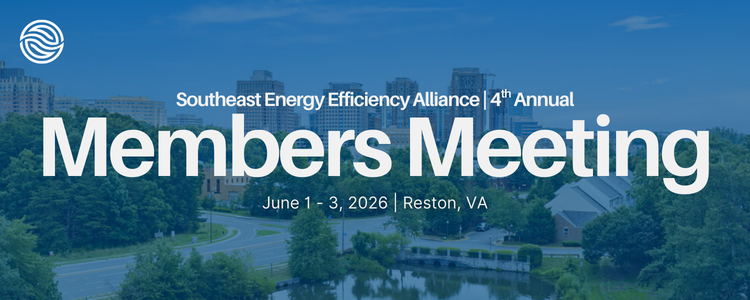
Save the date for SEEA’s 2026 Annual Members Meeting! Join us for three days of learning, collaboration, and connection with energy efficiency leaders from across the Southeast. From timely industry insights to meaningful peer conversations, the Annual Member Meeting is where our community comes together. This will be our 4th annual gathering, hosted by ICF at their state-of-the-art headquarters, a space designed for collaboration with a focus on sustainability.
📍 Reston, VA
📅 June 1 – 3, 2026
2026 Women in ASHRAE Leadership Symposium
The Women in ASHRAE Leadership Symposium is back after a sold-out debut, bringing together women from across HVACR and the built environment for two days of leadership growth and connection. Open to professionals at every career stage, the event supports skill-building, peer learning, and collective momentum for the future of the industry.
📍 Omni Los Angeles | Los Angeles, CA
📅 April 13-14, 2026
Register for RE+ Southeast 2026!
This event is designed to serve and advance this market by bringing together buyers and suppliers in solar and energy storage to explore business solutions, new technologies, policy initiatives, and other market factors.
📍Atlanta, GA
📅 March 31 – April 1, 2026
Register for the 2026 Green Sports Alliance Summit
The Green Sports Alliance Summit highlights better practices for enhancing performance and fosters dialogue with stakeholders and fans about environmental stewardship and social justice. This event will convene innovators who are pushing sustainability forward in sports and honor the trailblazers reshaping entertainment for a more sustainable future.
📍 Huntington Convention Center of Cleveland | Cleveland, OH
📅 May 5 – 7, 2026
Thank you for reading!
Have questions or want to collaborate with SEEA staff? Want something shared in our next Buildings Blueprint? Contact the Buildings Team — and don’t forget to sign up for our newsletter to stay up to date on the latest insights, resources, and announcements!
Buildings Blueprint Q3 2025
Resources
Regional News
- #25 – New Orleans, LA: 30.6 LEED-registered buildings per 10,000 housing units
- #21 – Arlington, VA: 52.2 per 10,000 housing units
- #17 – Alexandria, VA: 66.7 per 10,000 housing units
- #12 – Jacksonville, NC: 149.8 per 10,000 housing units
The authors concluded that cities with a high density of LEED certified buildings tend to have local policies or programs incentivizing energy-efficient buildings and local expertise to support program success. In addition, building portfolio owners with energy efficiency goals, such as universities and the military, also make a big impact.
These rankings show how sustainable construction practices are expanding across the Southeast, with both large and mid-sized cities demonstrating measurable progress in integrating energy-efficient design and construction into the built environment.
What SEEA Staff is Reading
Events
Buildings Blueprint – 2nd Quarter
April – June 2025
Welcome to SEEA’s Buildings Blueprint, where we share updates and resources on energy codes and the built environment across the Southeast and U.S. Island territories.
Leadership Update at SEEA
We’re thrilled to welcome John Silkey as the new Executive Director of the Southeast Energy Efficiency Alliance, beginning July 7!
John brings more than a decade of experience in clean energy, sustainability, and organizational leadership, including past service as Chair of SEEA’s Board. His deep understanding of the region’s energy landscape and commitment to community-centered solutions make him a strong and visionary leader for SEEA’s next chapter. Welcome, John!
Read more in the press release below.
SEEA is Hiring: Senior Program Manager – Efficient Buildings
SEEA is seeking a passionate and experienced Senior Program Manager to lead clean energy initiatives across the Southeast. This role helps shape a more energy-efficient built environment by managing impactful programs, guiding cross-functional teams, and collaborating with stakeholders to advance equitable energy solutions.
Resources
Shape the Future of Energy Workforce Training!
SEEA is partnering with NREL on a national survey to better understand hiring and training in the residential energy workforce. Your feedback will help identify real challenges and opportunities, shaping strategies that will strengthen our industry!
The 10-minute survey is open to contractors and professionals working on residential energy performance improvements, including single-family homes, manufactured housing, and multifamily buildings. Your input can drive change!
Click below to complete the survey:
Regional News
Atlanta’s Cool New Cool Roof Rule
The City of Atlanta has adopted a new policy requiring all new and replacement roofs (both residential and commercial) to use “cool roof” materials, such as light-colored or reflective surfaces designed to reflect more sunlight and absorb less heat than traditional roofing. According to Grist, this shift is projected to lower average summer temperatures by 2.4°F citywide, and up to 6.3°F in the city’s hottest neighborhoods. Over time, the policy could result in $310 million in energy savings over the next 35 years.
Cool roofs are a simple yet high-impact solution that reduces heat absorption, lowers indoor temperatures and cooling needs, and improves overall thermal comfort – especially important in the Southeast, where extreme heat is already a public health concern. By integrating this requirement into its building code, Atlanta is taking a step towards advancing a vision for a resilient, energy-efficient future, while also supporting long-term affordability and high-quality development. To learn more, click the link below.
Building Better in Birmingham: Investing in Homes That Last
The City of Birmingham, in partnership with GROWTH Homes, has launched a $16.6 million initiative to build 52 affordable, energy-efficient homes in Pratt City’s Shadow Brook subdivision, with additional construction planned in the Oak Hill and Woodlawn neighborhoods. These homes will follow high-performance construction practices to reduce energy costs, enhance comfort, and support long-term housing quality.
This effort contributes to Mayor Woodfin’s goal of creating 2,500 new units of affordable housing and includes funding for home repairs and upgrades in existing residences to preserve the local building stock quality. To learn more, click the link below.
Meta’s Mega Data Center Raises Energy Questions in Louisiana
Meta has begun construction on a $10 billion, 4-million-square-foot AI data center in Richland Parish, Louisiana, its largest investment to date. Expected to consume more than twice the electricity used by the city of New Orleans on a peak day, the facility will require major infrastructure support, including three new natural gas power plants proposed by local utility Entergy Louisiana.
While the project is projected to create 5,000 construction jobs and 500 permanent positions, it has sparked debate over long-term costs, grid reliability, and public investment. A new 20-year sales tax exemption for data centers built before 2029 could cost Louisiana tens of millions annually through 2059. To learn more, click the link below.
Powering Up: Alabama Invests in Energy Efficiency Upgrades
Alabama Governor Kay Ivey has awarded nearly $700,000 in grants through the State Energy Program to support energy efficiency upgrades at public and nonprofit facilities across the state. The funding will go toward improvements like LED lighting, HVAC systems, and upgraded wastewater equipment, helping lower energy use and reduce operational costs.
Grant recipients include county offices, municipal utilities, healthcare centers, and the Alabama Shakespeare Festival, with a broad commitment to improving building quality throughout both urban and rural communities. To learn more, click the link below.
All Aboard: Rail Service Returns to Southwest Virginia After Nearly 50 Years
On April 24, 2025, Virginia Governor Glenn Youngkin joined Amtrak and local leaders in Christiansburg, Virginia, to break ground on the New River Valley Rail Project, marking the return of passenger rail service to the region for the first time since 1979. The $264.5 million project includes rail upgrades, a new platform with canopy, parking, and improved signaling infrastructure.
Renovation of Christiansburg’s historic Cambria Station is set to begin in 2027, when Amtrak Virginia will launch two daily roundtrips to Washington, D.C., with stops in Roanoke, Lynchburg, Charlottesville, and beyond. The project is expected to improve regional connectivity, ease congestion along the I-81 corridor, and provide lower-emission travel options. To learn more, click the link below.
What SEEA Staff is Reading
From Headlines to Housing: Folio House Revives a Historic Atlanta Landmark
A historic office building in downtown Atlanta is set to receive a $110 million transformation into Folio House, a mixed-use development led by Gorman & Co. with design by Gensler. Formerly home to the Atlanta Constitution, and later Georgia Power’s Atlanta Division, the building will be thoughtfully restored to include 50 affordable housing units and ground-floor retail, with residences reserved for households earning 30–80% of the area median income. Plans also include shared community space and design elements that honor the building’s historic character with the necessities of contemporary city life.
The upgrades will include lead abatement, structural repairs, and energy-efficient equipment upgrades, breathing new life into an unused structure through a climate- and community-responsive design. Ahead of the 2026 FIFA World Cup, Folio House reflects the city’s broader movement toward reuse over demolition and community-centered development within the existing city landscape. To learn more, click the link below.
Setting the Standard: Alabama Builder Commits to 100% ENERGY STAR Homes
Stone Martin Builders, an Alabama-based residential homebuilder, has committed to constructing more than 800 ENERGY STAR-certified homes across Alabama. These homes are designed for energy efficiency, comfort, and performance, while saving homeowners at least 10% on their utility bills, compared to homes built to the minimum code requirements. To learn more, click the link below
Green Goals, Gold Standards: Emory’s New LEED Gold Housing Breaks Ground
Emory University’s newest graduate student housing, The Ridge, has earned LEED Gold certification, adding to the university’s growing portfolio of high-performance buildings. The project is expected to deliver significant energy and water savings: reducing energy use by 26% and water consumption by 36% compared to a standard building. The project includes a stormwater management feature alongside health-conscious design elements like indoor humidity controls and low-emissions materials.
This milestone brings Emory past 4 million square feet of certified space and advances its institutional goals of cutting greenhouse gas emissions 50% by 2030 (measuring from a 2010 baseline) and achieving net-zero by 2050. The Ridge offers a strong example of how campuses across the Southeast can integrate energy efficiency and high-performance design into student housing. To learn more, click the link below.
Townhomes Lead a Shift Toward Efficient City Living
According to Builder magazine, townhomes are gaining renewed attention in 2025 as a more energy- and space-efficient alternative to single-family homes. Builders across the Southeast are offering townhomes in walkable, mixed-use neighborhoods with smaller footprints and shared infrastructure. The proportion of new construction starts that are townhomes, has not been this high since 2008, according to the National Association of Home Builders (NAHB).
These homes are especially attractive to first-time buyers, retirees, and professionals seeking long-term affordability and low-maintenance living. As housing demand increases, townhomes are helping reshape residential development in the Southeast. To learn more, click the link below.
Events
Sharpen Your Skills with Southface Training
Ready to level up your building science expertise? Southface Institute has several upcoming informational sessions and training courses:
📅 Sept 18 – 16 Best Practices for Sustainable O&M (Virtual)
📅 Sept 30 – EarthCraft Builder Training (In-Person, Atlanta)
📅 Oct 13 – ENERGY STAR Certified Homes Info Session (Virtual)
📅 Dec 9–10 – ENERGY STAR Certified Homes Training (Virtual)
Explore the full schedule and register at the link below.
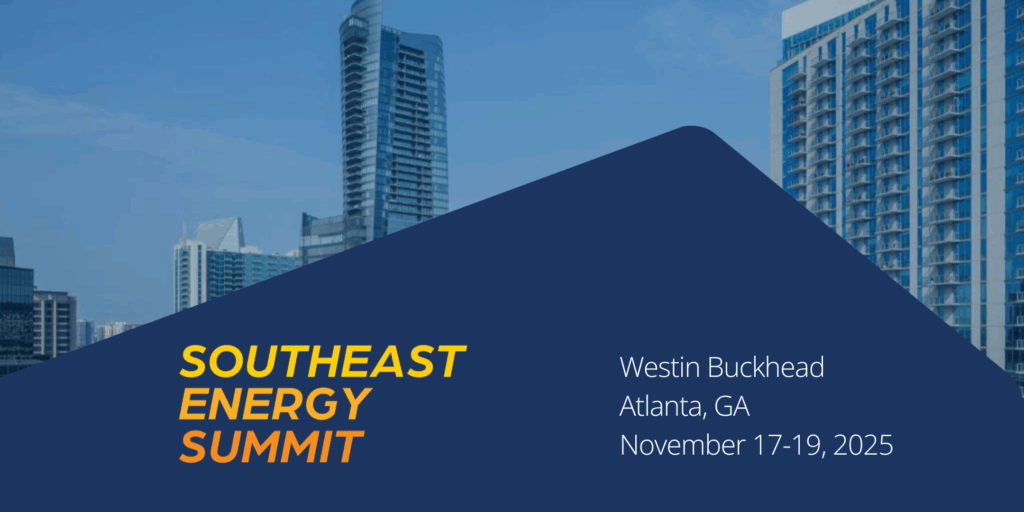
2025 Southeast Energy Summit
📍 November 17–19, Atlanta, GA
The Southeast Energy Summit returns this fall, bringing together energy leaders, innovators, and changemakers from across the region. Hosted at the Westin Buckhead in Atlanta, this three-day event is your chance to dive into dynamic discussions, celebrate progress in energy efficiency, and make meaningful connections through curated networking events.
Registration is officially open! Lock in your spot now and enjoy discounted early bird rates—available for a limited time.
Want to be a sponsor or exhibitor? Reach out to info@seealliance.org to get involved.
Mark your calendar, and we’ll see you in November!
Click the link below to learn more about the event.
Thank you for reading!
Have questions or want to collaborate with SEEA staff? Want something shared in our next Buildings Blueprint?
Subscribe to the building’s newsletter here.
Buildings Blueprint (1st Quarter)
By Elizabeth Willis
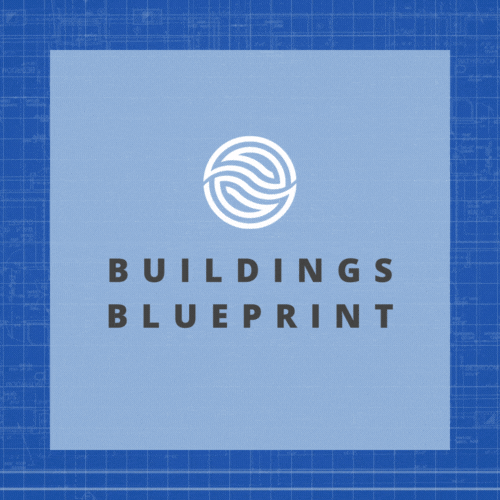
Buildings Blueprint January – March 2025
Welcome to SEEA’s Buildings Blueprint where we provide updates and resources on buildings and energy codes in the Southeast and U.S. Islands.
——————————————————————————————————————————
Upcoming Events
As demand for sustainable building solutions continues to rise, so does the need for a trained workforce. In collaboration with SEEA and AZS Consulting, Inc., Viridiant has developed a series of practical training videos as part of the Advanced Ready Workforce Southeast initiative. These courses are designed to empower business owners, installers, and professionals to stay ahead in the rapidly evolving energy efficiency market!
Ready to upskill and meet tomorrow’s energy demands?
Upcoming Trainings:
🗓️ May 6 at 10:00 AM & May 7 at 1:00 PM – Building Professional Training (Virtual)
A two-part virtual training offering 6 AIA credits. Sessions will cover topics related to sustainable building materials, practices, and project management.
More info & registration →
🗓️ May 20 at 8:30 AM – In-Person: 2021 Virginia Energy Conservation Code Updates
Location: 1601 Rolling Hills Drive, Richmond, VA
Covers updates to the Virginia Uniform Statewide Building Code taking effect January 2025.
More info & registration →
🗓️ May 21 at 12:00 PM – Webinar: 2021 Virginia Energy Conservation Code Updates
A virtual option covering the same code updates for those unable to attend in person.
More info & registration →
Resources
Shape the Future of Energy Workforce Training!
Help SEEA and our industry partners level up the future of energy workforce training! NREL is conducting a national survey of residential trade allies to understand how they view hiring, training, and workforce development opportunities. The goal of this survey is to understand better ways that federal and state programs can effectively support companies and their workforce through training, education, and other resources.
The 10-minute survey is for contractors involved in improving the energy performance of residential buildings, including single-family, manufactured housing, and multifamily dwellings. This includes business owners, individual workers, managers, hiring managers, and other personnel who impact homes!
Click here to complete the survey: https://survey.alchemer.com/s3/8191134/SEEA-Outreach-Workforce-Innovation-Lab-Hiring-Training-Survey
——————————————————————————————————————————
Regional News
Columbus, Georgia is getting a major transportation upgrade with a new Multimodal Center designed to bring bikes, buses, and rideshares all under one roof. Located across from the city’s main bus station and a park-and-ride lot, the space will feature secure bike storage and easy access for taxis, Ubers, and Lyfts, encouraging locals to mix and match how they move around. What makes the project even more notable is that it’ll be the first mass timber building in Columbus, using locally sourced Southern yellow pine for a lower carbon footprint. The idea has been in the works since 2012, transforming a lot that’s sat empty since the ’90s into a sustainable mobility hub. Learn more about the project here!
——————————————————————————————————————————
In Portsmouth, Virginia, a historic church building is being repurposed in the face of growing climate-related crises. Local nonprofits and community leaders are working to turn New Bethel Baptist Church into a resilience hub, a space that not only serves parishioners but also supports the broader community during climate-related emergencies. Plans include a solar-powered microgrid with battery storage, enabling the church to act as a refuge during power outages and extreme weather events. The initiative intends to assist vulnerable residents, while offering education on localized climate resilience strategies. It’s an innovative model for how existing community buildings can be reimagined into community assets – learn more about it here.
——————————————————————————————————————————
As Virginia works toward the Clean Economy Act’s goal of a carbon-free power grid by 2050, rural Virginia communities are pushing back against the growing number of large-scale solar farms. Many view these projects as unsightly developments that disrupt the natural landscape, especially as rural land is increasingly used to generate power that is exported for urban Northern Virginia. Rooftop solar has been suggested as an alternative, but experts say it falls far short of meeting utility-scale demand, especially with power needs projected to triple by 2040 due to data center growth. A more viable solution may lie in solar canopies over parking lots. Cities like Richmond, Norfolk, and Virginia Beach devote up to 36% of their land to parking, offering untapped potential for solar generation without sacrificing farmland or forests. A proposed bill encouraging this approach could help ease the burden on rural communities and rebalance how the state meets its clean energy goals. Learn more here.
——————————————————————————————————————————- The University of South Carolina has completed energy efficiency upgrades in five of its most energy-intensive campus buildings, in partnership with Siemens, aimed at cutting energy use and costs. Renovations began in Spring 2024 beginning with the Thomas Cooper Library, Jones Physical Science Center, Swearingen Engineering Center, the Close-Hipp Building, and 1600 Hampton Street.
Upgrades included improvements to HVAC and temperature control systems, lighting, and insulation. These changes are projected to save the university more than $8 million over the next 15 years.
Most of the work was completed without disrupting campus operations, and the changes – while largely invisible to students and visitors – are already improving building comfort and functionality. Siemens will continue monitoring the buildings over the next 15 years to verify performance and ensure energy savings targets are met. If they aren’t, Siemens is contractually required to cover the shortfall, making the project low-risk and high-impact for the university. Click here to learn how USC is cutting energy costs and building a more sustainable campus – one upgrade at a time.
——————————————————————————————————————————
A massive new data center campus, Project West, has been proposed just outside LaGrange, Georgia, promising a $10 billion investment and nearly 600 new jobs over the next decade. Spanning over 500 acres near I-85, the development would include six 250,000-square-foot facilities powered by 600 megawatts of electricity.
Backers say the project could deliver an estimated $762 million in net economic benefit to the city and county, with job salaries averaging $80,000. But as data centers spread beyond metro Atlanta into new communities, concerns are growing over their social, economic, and environmental impacts. Click here to learn more about what’s next for Project West, and what it could mean for the future of rural data infrastructure in Georgia.
——————————————————————————————————————————-
What SEEA Staff is Reading
South Florida’s luxury towers are sinking, and not just from sea level rise. A new study from the University of Miami has found that nearly three dozen high-rise condos and hotels along a 12-mile stretch of South Florida’s coastline are sinking or settling by as much as 3 inches in some areas. Many of the affected buildings are less than 10 years old and shifting ground conditions tied to nearby construction and the region’s porous limestone base may be to blame. The findings raise serious concerns about long-term safety, especially as similar patterns may be emerging farther north in Broward and Palm Beach counties. Click here to explore the study and what it could mean for coastal development and structural resilience in South Florida.
——————————————————————————————————————————
The clean energy workforce is growing, but where are the workers? Residential decarbonization is creating big opportunities for job growth, but a shortage of skilled, trained workers is slowing progress. A new report from ACEEE breaks down the most pressing workforce challenges, from lack of awareness and training gaps to inconsistent contractor licensing. It also offers practical solutions: outreach to underrepresented communities, standardized training programs, partnerships with community orgs, and better support for contractors. Click here to read the full report and explore how we can build the workforce needed to power the clean energy transition.
——————————————————————————————————————————
Thanks to a partnership between the Wells Fargo Foundation and the Sustainability Institute, Ms. Gloria Daniels of North Charleston, SC has received a full home energy upgrade – including efficiency improvements and a new solar system. This will drop her average monthly energy bills from about $350 to just about $90, a 72% savings. This project is part of a broader effort to show how energy efficiency and renewable energy can deliver real, life-changing results for local residents. Click here to read how one home makeover is powering affordability – and what it means for the future of energy in the South.
——————————————————————————————————————————
Tennessee has cheap electricity but high power bills, report finds. A new report from Nashville-based think tank ThinkTennessee highlights a hidden cost in the state’s low energy rates: high usage. Despite ranking among the top 10 for cheapest electricity, Tennesseans still face average monthly bills of nearly $135, largely because they use 30% more power than the national average. The reason? Outdated building codes and inefficient homes that require more energy to power and stay comfortable. The report calls for updated energy codes, expanded efficiency incentives, and grid upgrades that would help lower bills and improve housing affordability statewide. Click here to see how building codes could deliver big savings for Tennessee families.
——————————————————————————————————————————
SEEA is Hiring!
SEEA is seeking an Executive Director to lead the organization into its next phase of growth and success. As the face of SEEA, the ED will drive the strategic vision, inspire action, and build strong coalitions with diverse partners. The ED will set a professional tone, ensuring continued organizational progress and positive change. A proactive communicator and fundraiser, the ED will secure financial support from a variety of sources. This leader will embody SEEA’s mission, demonstrate a passion for energy efficiency, and stay ahead of emerging trends to maintain SEEA’s leadership in the field.
Learn more and apply here: Executive Director – DSG Global
——————————————————————————————————————————
Thank you for reading!
Have questions or want to collaborate with SEEA staff? Want something shared in our next Buildings Blueprint?
Subscribe to the building’s newsletter here.
Buildings Blueprint (3rd Quarter)
By Olivia Begalla, Maggie Kelley Riggins, & Elizabeth Willis

Buildings Blueprint July-September 2024
A Note From our Team
We are deeply saddened by the devastation caused by Hurricanes Francine and Helene across our region. To our friends and partners in Florida, Georgia, South Carolina, North Carolina, Tennessee, and Louisiana – we see you, we hear you, and we are profoundly grateful that you are still with us. To those preparing for Milton, we hope you, your families, and your community are able to stay safe this week.
As our region faces increasingly intense storms and the challenges of aging infrastructure, we understand that events like these are no longer rare. At SEEA, we remain committed to strengthening the resilience of people and communities, helping them not only to survive but to thrive after disasters. As our colleague Jackie Dadakis from Louisiana reminds us, we are in this work to “make buildings more resilient so that our people don’t have to be.”
We are grateful to see the rapid response from emergency responders, state agencies, essential service providers, and volunteers. Below are just a few current resources to support the region.
- FEMA has begun taking applications for the Individual Assistance Program, which includes money for emergency housing at hotels, immediate recovery needs and more. Call 800-621-3362 or visit DisasterAssistance.gov for more information or to get started on an application.
- National Voluntary Organizations Active in Disaster (NVOAD) has reputable and recommended local organizations to support and volunteer through – https://www.nvoad.org/
For future updates, visit the FEMA website – https://www.fema.gov/disaster/current/hurricane-helene
Welcome to SEEA’s Buildings Blueprint where we provide updates and resources on buildings and energy codes in the Southeast and U.S. Islands.
—
Regional News:
The Southeast Energy Efficiency Alliance (SEEA) is excited to announce the launch of the Building a Resilient and Efficient Southeast (BRESE) Collaborative, as part of a $90 million initiative from the U.S. Department of Energy to advance energy codes nationwide. Funded by the Bipartisan Infrastructure Law, this groundbreaking effort will address the Southeast’s unique climate challenges and regulatory landscape by uniting diverse stakeholders to strengthen building energy codes. Through peer-to-peer cohorts, a Community Code Innovation Prize, and targeted technical assistance, the BRESE Collaborative aims to improve energy code adoption, compliance, and efficiency—ultimately reducing emissions and energy costs across the region.
—
We are excited to announce the launch of the American Council for an Energy-Efficient Economy (ACEEE) Codes Collaborative Fellows program! This opportunity is open to qualified professionals, and applications will be accepted until November 1, 2024. Selected fellows are expected to begin in January 2025.
The fellows will work as contractors for the ACEEE with a budget of $160,000 allocated over two years. This budget includes up to $10,000 for travel expenses, including participation in annual in-person Codes Collaborative meetings, the Department of Energy National Energy Codes Conference, and events with the Urban Sustainability Directors Network.
Five proposed project topics are available for fellows, but applicants are also encouraged to suggest their own ideas for review by the National Energy Codes Collaborative:
- Career transition roadmaps
- Ensuring compliance with HUD/USDA minimum energy standards
- Community-based organization engagement
- Supporting energy-focused builders
- Labor engagement
Check out the Fellows Program site for more information and to submit an application.
—
The U.S. Department of Energy’s Office (DOE) of State and Community Energy Programs announced its selection for Round 1 of the Inflation Reduction Act (IRA) Support for Building Energy Codes and Innovative Codes. Notably, one state within our region, Hawaii, was awarded $18.1 million to develop and adopt a building performance standard designed to reduce energy costs while also driving the creation of resources, jobs, and training in disadvantaged communities. This initiative represents a significant step forward in making energy efficiency more accessible and equitable across the state.
—
A report from the Climate Jobs National Resource Center highlights the job creation potential tied to the Inflation Reduction Act’s (IRA) tax incentives, projecting that nearly 313,588 jobs could emerge from 1,132 clean energy projects currently in development in the Southeast. While this surge is promising, the clean energy sector faces significant challenges, including labor shortages and a lack of registered apprentices to meet growing workforce demands. The IRA’s emphasis on labor standards is essential for closing these gaps and ensuring a skilled workforce is in place to support the clean energy transition.
—
The U.S. DOE has awarded $190 million in funding through the 2024 Renew America’s Schools Prize and Grant to help K-12 schools enhance energy efficiency, indoor air quality, and create healthier learning environments. Initially, the 21 winners received a $300,000 cash prize, with 16 advancing to phases 2 and 3, entering cooperative agreements for additional awards ranging from $7.5 million to $15 million. This national effort will improve 320 school facilities across 25 states, benefiting over 123,500 students and 9,100 teachers while driving cost savings that can be reinvested in education.
Prize winners in the Southeast include Broward County Public Schools (FL), Hoke County Schools (NC), and West Kentucky Educational Cooperative (KY). Selectees for cooperative agreements from the Southeast include Marion County School District (SC), Miami-Dade County Public Schools (FL), Richmond Public Schools (VA), and Rockingham County Schools (NC).
—
The State Energy Office within the South Carolina Office of Regulatory Staff has awarded Earth Advantage a contract to develop and implement a statewide voluntary home energy labeling program. Leveraging the U.S. Department of Energy’s (DOE) Home Energy Score™, Earth Advantage will create and manage a program aimed at educating South Carolina residents about their homes’ energy performance. This program will encourage energy-efficient upgrades, promote conservation, and facilitate transparency in real estate transactions by providing standardized energy reports. Home energy labeling is an important tool for achieving energy targets and can greatly impact real estate valuation and lending practices, increasing the value and demand for more efficient homes. “It’s encouraging to see more and more states adopting Home Energy Score to drive demand for more efficient homes,” said David Heslam, Executive Director at Earth Advantage. For more information, visit, Earth Advantage.
—
The U.S. Environmental Protection Agency (EPA) has launched a fully Spanish version of Portfolio Manager, enabling Spanish-speaking building owners, managers, and tenants to easily measure and assess energy use, water consumption, waste generation, and greenhouse gas emissions in their buildings. Users can also apply for ENERGY STAR certification and access support in Spanish, with additional resources expected in early 2025. To learn more, join the “Portfolio Manager 101 (En español)” webinar on October 20th from 1:00 to 2:15 pm.
—
Events:
Southeast Energy Summit – November 20-22, 2024 – Nashville, TN
Save the date! The annual Southeast Energy Summit brings together the brightest minds in the industry to connect, explore and innovate for a more energy-efficient Southeast. Join us November 20-22, 2024 in Nashville, TN to dive into dynamic discussions, celebrate regional accomplishments, and enjoy fun networking events! Some notable sessions include Revitalizing Manufactured Housing: Strategies for Enhancing Efficiency, Affordability, and Resilience, Empowering the Future: Building a Resilient Workforce for the Evolving Energy Landscape, and Show Me the Money: How to Capitalize on Federal Funds.
—
The U.S. DOE maintains a page dedicated to building events in the region, highlighting upcoming webinars and workshops. In the upcoming quarter, participants can look forward to sessions such as “Successful Strategies for Better Insulating,” “Beyond Zero Energy: Balancing Embodied Carbon and Operational Energy Solutions to Achieve Zero Emission Buildings,” and “Resources and Best Practices for Growing the Green Building Workforce.” This resource is an excellent opportunity for those seeking to enhance their knowledge and skills in energy efficiency and sustainable building practices.
—
Mark your calendars for the U.S. Department of Energy’s Better Buildings, Better Plants Summit, scheduled for April 30th to May 2nd, 2025 in Washington, D.C. This annual event serves as a pivotal gathering for partners and key stakeholders to explore emerging technologies and share innovative strategies in energy efficiency, decarbonization, water and waste reduction, and more. Registration opens in early December, so be sure to keep an eye on the Better Buildings website for updates!
Buildings Blueprint (2nd Quarter)
By Olivia Begalla, Maggie Kelley Riggins, & Elizabeth Willis
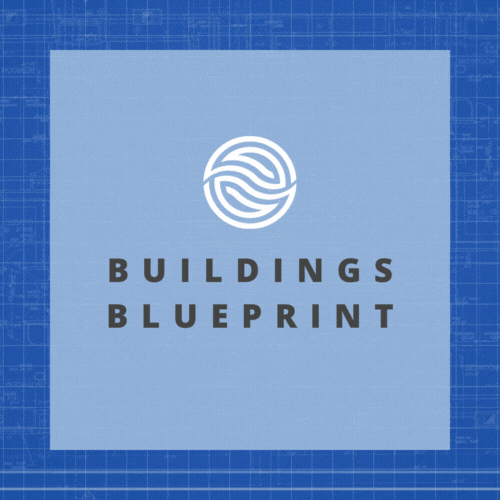
Hello! Welcome to SEEA’s second edition of Buildings Blueprint where we provide updates and resources on buildings and energy codes in the Southeast and U.S. Islands.
Regional News
The EPA has named Atlanta as one of the top five cities for Energy Star certified buildings in 2023. To earn the EPA’s Energy Star certification, the commercial building must be more energy efficient than 75% of similar buildings nationwide. The score is based on several factors such as energy use, hours of operation, and a variety of other operating characteristics. Alongside Atlanta, other southeastern cities including Miami, Charlotte, Orlando, Raleigh, and Tampa have also been named among the top 25. This achievement underscores the leadership of these Southeastern cities in promoting environmental stewardship and sustainable development in the region. Read more details here.
A construction crew in Chamblee, Georgia, has completed the first passive certified house in the state. This house has been officially certified by the Passive House Institute U.S. (PHIUS), which recognizes structures that meet rigorous sustainability standards. With only one other PHIUS-certified house in the entire Southeast United States, located in Virginia, Georgia has become the second state in the region to embrace the future of green, zero-carbon building.
June 1st marked the beginning of the Atlantic hurricane season, with the National Oceanic and Atmospheric Administration (NOAA) predicting an above-normal season for 2024. The outlook includes 17 to 25 storms with winds of 39 mph or higher. Of these, 8 to 13 could become hurricanes, including 4 to 7 major hurricanes. This forecast is particularly significant for the Southeast United States, often in the direct path of these storms. The expected severity of this season is prompting scrutiny of a North Carolina law that froze all the state’s building codes until 2031, likely leading to increased insured losses. The Insurance Institute for Business & Home Safety (IBHS) offers resources for hurricane preparedness, including guidelines for fortifying homes against wind-driven rain.
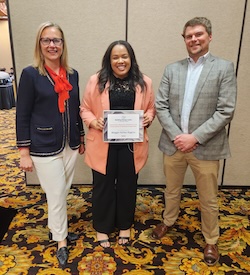
Congratulations to Maggie Kelley Riggins, SEEA’s Senior Program Manager, for receiving the Early Career Award for Excellence in the Advancement of Energy Codes from the U.S. Department of Energy Building Technologies Office! We are proud of Maggie’s impactful work on energy codes, focusing on how they affect people and her innovative contributions that bring the Southeast and US Islands to the national stage.
On April 3, 2024, the U.S. Green Building Council (USGBC) released LEED v5 for its first public comment period, providing a detailed look at the next generation of the green building program. USGBC plans to launch LEED v5 in 2025 and will update it on a five-year cycle. The new version introduces prerequisites for carbon, climate resilience, and social equity assessments on every project. Additionally, energy efficiency and carbon emissions credits have been decoupled, removing the previous single, comprehensive credit for these areas. To learn more about new pre-requisites and Special Platinum requirements, read more here.
Alabama Governor Kay Ivey has awarded over $6.1 million in grants to help cities, utilities, nonprofits, and low-income residents reduce energy costs. Funded by the State Energy Program and the Weatherization Assistance Program, these grants provide financial and technical assistance to improve energy efficiency. Projects include installing energy-efficient lighting, heating, and air systems, as well as weatherizing homes with upgrades like extra insulation, sealing air leaks, repairing HVAC systems, and replacing incandescent bulbs with high-efficiency ones. “These grants will help low-income households make upgrades that will significantly reduce heating and cooling bills,” said Gov. Ivey. Read about the grant recipients here.
Funding
The second round of the IRA funded Assistance for Latest and Zero Building Energy Code Adoption FOA is now open! This funding opportunity aims to support qualifying organizations to adopt the most current national model building energy codes, zero energy codes, and other codes that deliver equivalent or greater energy savings. The initiative includes an innovative approach to decarbonize existing buildings with specific, measurable, and enforceable requirements. Complete Applications for Round 2 are due September 13, 2024. Questions regarding the FOA can be submitted to IRACodes@hq.doe.gov.
The U.S. Department of Energy (DOE) has announced the final winning teams in the Collegiate Track of the American-Made Community Energy Innovation Prize. The three winning student-led teams were awarded $100,000 in the IMPACT Phase for demonstrating measurable impacts of clean energy in underserved communities. This initiative is part of the Biden-Harris Administration’s Justice40 Initiative, which aims to build trust and support clean energy transitions in underserved areas. One of the winning teams, the Georgia Tech Zero Energy Collaborations (GTZEC) from Atlanta, GA, represents our Southeast region. They designed sustainable net-zero homes and developed a green workforce in Westside Atlanta.
Collaboration Opportunities
SEEA is seeking proposals for single-family residential building energy code field studies in Louisiana and Georgia. Our goal is to identify gaps between current construction practices and full compliance with each state’s residential energy code.
This vital work will help us develop targeted training and technical assistance, boosting energy efficiency and compliance in both states’ residential construction sectors.
Key Details:
- Indicate intent to bid: fieldstudy@seealliance.org
- RFP open from July 8th – August 12th, 2024
- Virtual Bidders’ Conference: July 16th, 2-3 PM EST
For more information about the RFP application, click on the links below.
Virtual Bidders’ Conference Registration
The National Energy Codes Collaborative is a nationwide network empowering states and jurisdictions to implement updated building energy codes. Through technical assistance, capacity building programs, and community engagement, this collaborative engages with stakeholders from the local to the national level and working to bridge the gaps between communities and state and local agencies. Click here, to learn more about the Codes Collaborative programs and resources that can support your community’s goals to advance energy codes, reduce environmental impact, and promote equity and workforce development.
After successfully launching six technical advisory groups (TAGs) at the Kickoff meeting in May, the National Energy Codes Collaborative is excited to announce that the first virtual TAG meetings will commence this summer.
The TAGs facilitate topic-based working groups that provide technical assistance to Codes Collaborative members and affiliates between meetings. The end goal is to produce a publicly- available resource aimed at helping states and jurisdictions to effectively and sustainably implement energy codes.
The National Energy Codes Collaborative needs your experience and perspective in these conversations to ensure the resulting resources are as comprehensive, practical, and useful as possible! Sign up to receive updates and don’t miss an opportunity to participate!
Research on Equity and Energy Codes
The Pacific Northwest National Laboratory (PNNL) is conducting research to understand stakeholder perceptions of factors impacting the equitable adoption, enforcement, and compliance of building energy codes in the United States. As part of this research, PNNL staff will conduct interviews with diverse stakeholders and interest groups to learn how local energy code practices have impacted their communities.
Please fill out this questionnaire if you are interested in participating. If selected, interviews will be conducted over a Teams/Zoom call and will be less than an hour long. Participants will be compensated for their time.
What SEEA Staff is Reading
In April, the U.S. Department of Energy released “Decarbonizing the U.S. Economy by 2050”, a comprehensive strategy to achieving net zero greenhouse gas emissions by 2050. Notably, the plan places a significant focus on the building sector, acknowledging its substantial role in accounting for 74% of U.S. electricity consumption. The blueprint outlines four strategic objectives crucial for effective decarbonization: Increasing building energy efficiency, accelerating on-site emissions reductions, transforming the grid edge, and minimizing embodied life cycle emissions.
Resources
Enhance your skills with AESP’s premium online courses through FLEX! Delve into demand flexibility, exploring connected water heaters, lighting, HVAC systems, and distributed energy resources such as solar and EVSE. Thanks to the U.S. Department of Energy, this opportunity is free, convenient, and designed for future energy efficiency leaders. We’re proud to be a partner in this initiative, offering access to cutting-edge knowledge and resources.
Events
Inclusive Energy Codes: Bridging the Gap to Achieve Equity and Environmental Justice – July 18, 2024 – DOE BECP Webinar
The DOE Building Energy Codes Program (BECP) offers regular webinars on the third Thursday of every month at 1 pm EST. Continuing Education Credits (AIA and ICC) are offered for a majority of the webinars. Join our Senior Program Manager, Maggie Kelley Riggins on July 18th, 2024, from 1:00-2:30pm ET for an informative session titled, “Inclusive Energy Codes: Bridging the Gap to Achieve Equity and Environmental Justice”. Find more information here.
ACEEE Buildings Summer Study – August 4-9, 2024 – Pacific Grove, California
The 2024 Summer Study on Energy Efficiency in Buildings, hosted by the American Council for an Energy-Efficient Economy, will take place this August in California! Summer Study brings together professionals from around the globe to the Asilomar Conference Grounds to collaborate, debate, and advance the technologies, practices, and research necessary to equitably decarbonize the building sector in a manner that addresses the urgency of the climate crisis. This year, the theme is Equity and Climate Action: Time to Deliver, highlighting the immediate need for action that creates equitable climate solutions.
Registration & Hotel Information
Southeast Energy Summit – November 20-22, 2024 – Nashville, TN
Save the date! The annual Southeast Energy Summit brings together the brightest minds in the industry to connect, explore and innovate for a more energy-efficient Southeast. Join us November 20-22, 2024 in Nashville, TN to dive into dynamic discussions, celebrate regional accomplishments, and enjoy fun networking events! More details coming soon!
Publications
The U.S. Department of Energy (DOE) has developed a National Definition of a Zero Emissions Building, which is highly energy-efficient, does not emit greenhouse gases directly from energy use, and is powered solely by clean energy. These standardized and measurable criteria will help the building sector move toward zero emissions and support climate goals in both the public and private sectors. While not a regulatory standard, this definition provides guidance for determining if a building has zero emissions from operational energy use. Future updates may address emissions from building materials, refrigerant impacts, and other considerations.
National Emissions Standards: Unleashing Health & Economic Potential for the Southeast (Justin Brightharp, Senior Program Manager) This brief examines the impact of the U.S. Environmental Protection Agency’s new emissions standards for vehicles from 2027 to 2032. The Southeast, with its significant investments in electric vehicle manufacturing, stands to gain economically through job creation and improved public health. Federal incentives further support this transition, promising substantial regional advantages.
SEEA recently re-launched the “Energy Insecurity in the Southeast” StoryMap. This innovative digital resource delves into the complex issue of energy insecurity, which is prevalent in the Southeast. In this region, one in three households experience or have experienced energy insecurity, particularly low-income households and people of color. The new version includes a broader conceptual framework integrating the most recent data while offering insights into the roots of energy insecurity in the Southeast.
Thank you for reading! We hope that you enjoyed the Buildings Blueprint and that this information helps you in your work to increase equitable access to energy in buildings in our region (and beyond!).
Have questions or want to collaborate with SEEA staff? Want something shared in our next Buildings Blueprint?
Subscribe to the building’s newsletter here.
Buildings Blueprint (1st Quarter)
By Olivia Begalla & Maggie Kelley Riggins

Hello! Welcome to SEEA’s inaugural issue of Buildings Blueprint, the latest quarterly newsletter dedicated to the building industry community. This publication is your guide to the ever-evolving landscape of buildings and energy codes in the Southeast and the U.S. islands, offering updates and resources to empower built environment professionals to excel in their roles.
Energy Code Updates
Legislation has been filed in South Carolina to update the commercial building energy code from the 2009 IECC to the 2021 IECC, standing to save over $900k in energy costs in the first year. SEEA is actively completing a residential energy code field study in the state to inform stakeholders and decision-makers with on-the-ground data for a residential energy code update in the future.
On January 18th, 2024, Virginia officially adopted the 2021 editions of the Uniform Statewide Building Code, the Statewide Fire Prevention Code, the Industrialized Building Safety Regulations, and the Amusement Device Regulations. The updates include an array of energy efficiency enhancements, including Virigina-specific HVAC sizing, fenestration and wall insulation, and ventilation. The state board was directed in January to reduce regulations by 25%; however, industry stakeholders made public comments to the Virginia Housing and Community Development Board to ensure the stakeholder-developed codes stayed intact after a two-year process. To view the 2021 regulations, click here.
Florida officially adopted the eighth edition of the Commercial and Residential Florida Building Code, which became effective on December 31st, 2023. The updated edition includes changes to commercial envelope insulation and testing, commercial minimum efficiency HVAC requirements, residential performance-based compliance, and more. To view a list of Florida building code resources, click here.
For more energy code information, check out energycodes.gov.
Training & Education
Building a more energy-efficient workforce? The Louisiana Housing Corporation’s (LHC) state-of-the-art Weatherization Training Center in Baton Rouge offers a variety of weatherization courses and is a BPI Testing Center and IREC Accredited Provider. Experiential courses include classroom and hands-on training in all aspects of residential weatherization, including combustion safety testing with live gas appliances, insulation and airsealing, and energy auditor protocols. The center can train up to 30 people at a time, offer classroom and specialized field training, and provide training for administrative personnel. Take a virtual tour of the center today!
The U.S. Department of Energy Building Energy Codes Program (BECP) has launched a free resource hub to support training and education for various building energy code-related topics. This central platform is designed to assist stakeholders in adopting, implementing, and complying with building energy codes. The hub contains various training resources, including webinars, presentations, and software, all created to advance energy code education.
Check out the Clean Energy Clearinghouse, which has free educational resources and CEU-bearing courses for all clean energy stakeholders – including authorities having jurisdiction (AHJs), fire departments, clean energy contractors, manufacturers and suppliers, electric utilities, building owners, facility managers, and others— to benefit from current and timely information related to renewable energy developments.
Regional Investment
In July 2023, SEEA was awarded three Resilient Energy Codes Implementation grants from the Department of Energy, totaling $4.7 million to support healthier, more efficient housing in the region. As of January 2024, all three of these energy code projects are underway.
Securing Code Advancements in Louisiana
In collaboration with the Louisiana Office of the State Fire Marshall, Louisiana Department of Natural Resources, American Institute of Architects Louisiana, Green Coast Enterprises, University of Louisiana-Lafayette, and the International Code Council, SEEA is providing training and technical assistance on the most recent residential and commercial energy code updates to the building energy workforce in Louisiana. Implementing an updated energy code supports a stronger, more diverse workforce and lays the foundation for future funding applications. Residents in Louisiana are estimated to save 1.026 MMT of CO2 over five years, equivalent to removing 45,663 gasoline-powered cars from the road over the same period, by adopting and implementing the new energy code.
Georgia Residential Field Studies: Single and Multifamily
SEEA is working with state leaders, including the Georgia Environmental Finance Authority, Built Environment LLC, Greater Atlanta Homebuilders Association, Georgia Power Company, Oglethorpe Power Company, Conditioned Air Association of Georgia, and ECO-Action to conduct single-family and multifamily energy code compliance studies. This is the first multifamily energy code compliance study in the Southeast. These studies will prepare the Georgia homebuilding industry for an advanced energy code adoption process and identify energy code training and education gaps. Meeting updated energy code standards for new construction and major renovations will help Georgia residents save an estimated $ 210 million in energy costs over five years.
Closing Equity Gaps to Advance Codes and Standards
With our partners, the National Renewable Energy Laboratory, the City of Atlanta, the City of Savannah, and the Georgia Environmental Finance Authority, SEEA seeks to understand and repair the impacts of historical disinvestment in the equitable implementation of building performance standards. The group is developing novel data tools to account for the financial and social costs of inequitable standards, calculate the investment needed to build equitably improve building performance, and develop and deploy a replicable policy and program community toolkit. The team is piloting this approach in Atlanta and Savannah, partnering with civic and community leaders, including those from disinvested areas, small business owners and staff, residential renters, and homeowners. The project team estimates $1.6 billion in energy cost savings over five years.
Buildings UP Southeast Regional Navigator
In August of last year, SEEA began supporting the U.S. Department of Energy in the implementation of its first-ever Buildings Upgrade Prize (Buildings UP). The goal of Buildings UP is to quickly and equitably upgrade existing residential and commercial buildings across the country to provide cleaner, more efficient, and affordable energy to occupants while providing project teams with a robust network of technical assistance support to ensure success. SEEA serves as a regional navigator and technical assistance provider, guiding 10 out of the 45 nationally awarded teams, whose pilot initiative(s) will be implemented in existing buildings in the Southeast region and U.S. Island territories. All 10 SEEA teams are in the equity-centered innovation prize pathway, which goes even more in-depth to engage the community and consider potential impacts, also covering 75% of upgrade costs.
- Appalachian Voices– (Project state: VA) – Appalachian Voices will build off their solar initiatives to deploy electrification technologies in community anchor buildings across Virginia’s coal communities and build a network of resilience hubs throughout the flood-impacted region.
- Community Housing Partners– (Project state: VA) Community Housing Partners are prioritizing decarbonization strategies in rural, mission-driven, multifamily communities in Virginia that don’t generate the revenue needed for capital reinvestment.
- Green The Church– (Project states: CA, FL) – Green the Church plans to implement building energy upgrades for Black Churches, initially piloting in West Oakland, California’s economically disadvantaged and historically segregated communities, followed by 15 additional upgrades in EJ communities across FL, GA, LA, and TX.
- Groundswell– (Project states: GA, AL) Groundswell will develop the plan and partnerships needed to expand and scale their Save on Utilities Long-term program (SOUL), which delivers energy efficiency upgrades and improves housing equity in disadvantaged, rural areas.
- Hijra House- (Project state: MS) The Hijra House Just Energy Initiative (JEI) engages underserved areas across nine Southern Mississippi counties, offering an innovative model for accelerating building upgrades, economic development, and local health goals.
- Louisville/Jefferson County Metro Government (LMG) – (Project state: KY) The Louisville team will be building on their successful Communities Local Energy Action Plan (C-LEAP) to achieve just clean energy transition in their affordable housing sector.
- New North Carolina Project- (Project state: NC) The New North Carolina project will develop a cohort model that builds a collaborative approach to support residential communities to receive building upgrades.
- Shifted Energy– (Project state: HI) Shifted Energy works in Hawaii’s tribal lands to support equitable energy and resiliency solutions for underserved indigenous communities.
- Together New Orleans– (Project state: LA) Together New Orleans will develop 74 resilience hubs in underserved nonprofit houses of worship in New Orleans, Louisiana, by weatherizing buildings, increasing energy savings, and utilizing solar power.
- West Anniston Foundation– (Project state: AL) The West Anniston project will provide building upgrades through building assessments and installation of heat pumps, health and safety, and energy efficient measures in environmental justice communities in West Anniston, Alabama.
Bloomberg American Sustainable Cities
Bloomberg Philanthropies announced its list of 25 U.S. cities receiving direct investment to leverage and implement federal funds to advance local projects. Of the 25 selected cities, 12 are in SEEA’s region and have the opportunity to develop affordable energy-efficient housing and increase equitable access to clean energy, among other initiatives.
- Birmingham, AL
- Montgomery, AL
- Atlanta, GA
- Savannah, GA
- Jackson, MS
- Charlotte, NC
- Raleigh, NC
- Chattanooga, TN
- Memphis, TN
- Nashville, TN
- Hampton, VA
- Newport News, VA
Funding
Concept papers for the Resilient Energy Codes Implementation Funding Opportunity Announcement (FOA) —Round 2— are due April 5th, 2024, at 5:00 PM ET. This initiative is a key component of the Biden-Harris Administration’s Investing in America campaign. It allocates $90 million to states, local governments, and tribes to support adopting and implementing modern building codes and develop related technical assistance. Applications can be submitted here.
Full applications for the competitive IRA Buildings Code FOA issued by The Office of State and Community Energy Programs (SCEP) are due April 30th, 2024. Funded by Biden’s Inflation Reduction Act (IRA), the initiative aims to provide up to $1 billion to states and local governments to adopt the latest model energy codes, zero energy codes, or building performance standards. Applications can be submitted here.
Applications for DOE’s 2024 Renew America’s Schools Prize are open. The second round of this funding will award up to $180 million to school districts across the country to implement upgrades, build partnerships, and build capacity. Applications are due Thursday, June 13th, 2024, at 5:00 PM ET. More information can be found here.
Events
National Energy Codes Conference – May 6-8, 2024 – Sacramento, California
Join SEEA staff at the National Energy Codes Conference this May in California! This national conference will have training, engaging sessions, and networking opportunities and is designed for energy code users and participants of all types. Building officials, builders, state energy offices, trade associations, energy efficiency organizations, architects, engineers, policymakers, manufacturers, utilities, code administrators, educators, researchers, and more are all encouraged to attend!
Registration & Hotel Information
Getting to Zero Forum – May 21-23, 2024 – Charlotte, North Carolina
Early registration is now open for the Getting to Zero Forum in Charlotte, NC, this May! This forum brings together industry leaders and experts to discuss the best approaches to reducing energy demand and advancing decarbonization through policies, programs, and projects. With an anticipated attendance of over 600 leading policy makers, designers, building owners, systems manufacturers, and commercial real estate professionals, participants will explore transformative opportunities for achieving zero energy and carbon in the built environment.
Registration & Hotel Information
ACEEE Buildings Summer Study – August 4-9, 2024 – Pacific Grove, California
The 2024 Summer Study on Energy Efficiency in Buildings, hosted by the American Council for an Energy-Efficient Economy, will take place this August in California! Summer Study brings together professionals from around the globe to the Asilomar Conference Grounds to collaborate, debate, and advance the technologies, practices, and research necessary to equitably decarbonize the building sector in a manner that addresses the urgency of the climate crisis. This year, the theme is Equity and Climate Action: Time to Deliver, highlighting the immediate need for action that creates equitable climate solutions.
Registration & Hotel Information
Southeast Energy Summit – November 20-22, 2024 – Nashville, TN
Save the date! The annual Southeast Energy Summit brings together the brightest minds in the industry to connect, explore and innovate for a more energy-efficient Southeast. Join us November 20-22, 2024 in Nashville, TN to dive into dynamic discussions, celebrate regional accomplishments, and enjoy fun networking events! More details coming soon!
Publications
Increasing Equitable Access to Heat Pump Water Heaters (Maggie Kelley Riggins, senior program manager) – This whitepaper, published in March 2024 by the Advanced Water Heating Initiative (AWHI) examines programs across the nation that are working to expand equitable access to heat pump water heaters.
Federal Funding Investment in the Southeast and the U.S. Territories (Grace Parker, research associate) – This collection of white papers and accompanying dashboards provide insight into the purpose, location, and type of funding invested in the Southeast from the $550 billion Bipartisan Infrastructure Law. Read more here.
Thank you for reading! We hope that you enjoyed the Buildings Blueprint and that this information helps you in your work to increase equitable access to energy in buildings in our region (and beyond!).
Sincerely,
Maggie Kelley Riggins, SEEA
Senior Program Manager
Have questions or want to collaborate with SEEA staff? Want something shared in our next Buildings Blueprint?
Subscribe to the building’s newsletter here.




